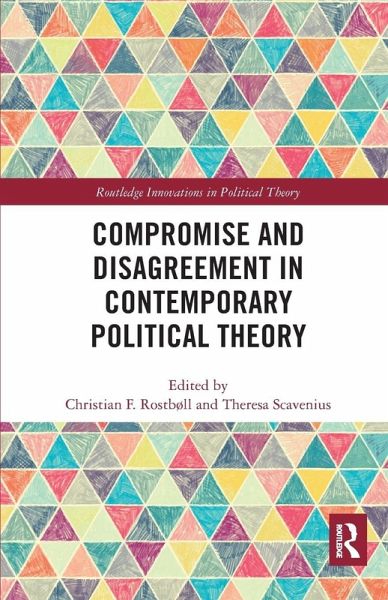
Broschiertes Buch
Compromise and Disagreement in Contemporary Political Theory
Versandkostenfrei!
Versandfertig in 1-2 Wochen

PAYBACK Punkte
32 °P sammeln!




Provides a critical review of the political theory of compromise and disagreement using a historical and philosophical analyses that explain and assess the meaning, use, and value of compromise in politics.
Christian F. Rostbøll is Professor of Political Science at the University of Copenhagen, Denmark, and holds a PhD from Columbia University, USA. He has published extensively within political theory. He is the author of Deliberative Freedom: Deliberative Democracy as Critical Theory (SUNY Press, 2008), and of articles in, among other journals, Journal of Politics, Political Theory, Constellations, Critical Review of International Social and Political Philosophy, Philosophy & Social Criticism, European Journal of Political Theory, Social Theory and Practice, and European Political Science Review. Theresa Scavenius is postdoctoral fellow in the Department of Political Science at the University of Copenhagen, Denmark. She has published widely on climate politics, global justice, and the relationship between facts and norms. Her recent publications include "Fact-Sensitive Political Theory," published in CRISPP (2017), "The Issue of No Moral Agency in Climate Action," published in Journal of Agricultural & Environmental Ethics (2017), and "The Tragedy of the Few," published in Res Publica (2016).
Produktdetails
- Routledge Innovations in Political Theory
- Verlag: Taylor & Francis Ltd
- Seitenzahl: 220
- Erscheinungstermin: 12. Juli 2019
- Englisch
- Abmessung: 216mm x 140mm x 12mm
- Gewicht: 314g
- ISBN-13: 9780367372743
- ISBN-10: 0367372746
- Artikelnr.: 57144364
Herstellerkennzeichnung
Libri GmbH
Europaallee 1
36244 Bad Hersfeld
gpsr@libri.de
Für dieses Produkt wurde noch keine Bewertung abgegeben. Wir würden uns sehr freuen, wenn du die erste Bewertung schreibst!
Eine Bewertung schreiben
Eine Bewertung schreiben
Andere Kunden interessierten sich für











